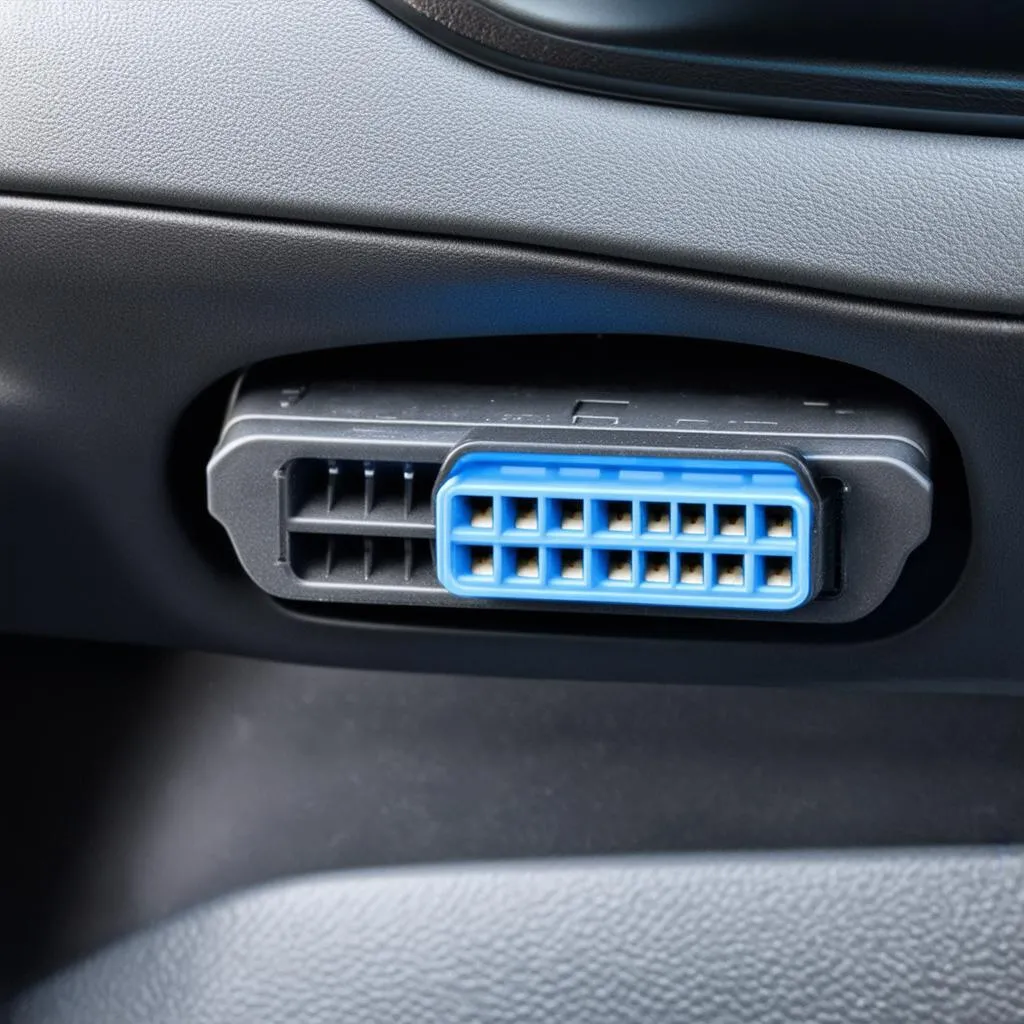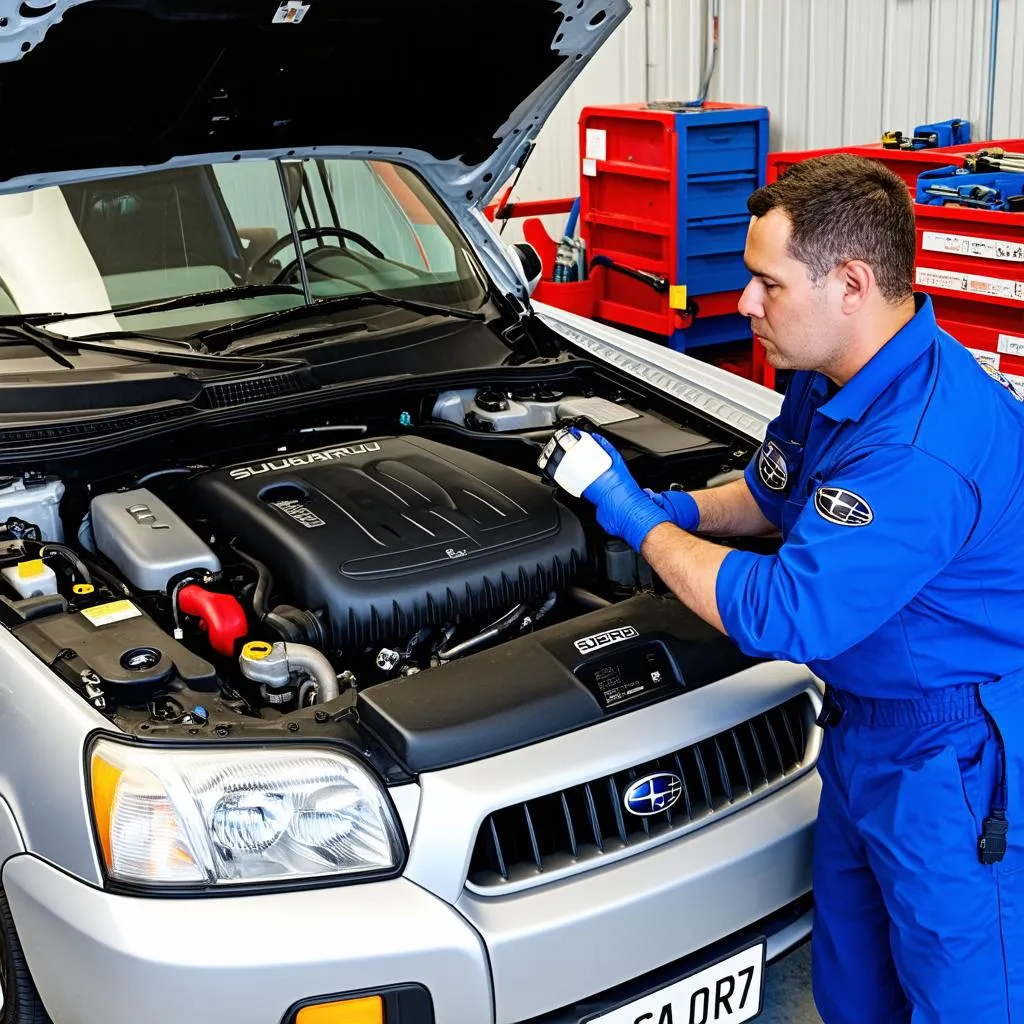“Check engine” light staring you down again? Don’t sweat it, every driver has been there. For us 2001 Subaru Forester owners, the OBD (On-Board Diagnostics) system is like a car whisperer, holding the key to understanding what our beloved Subies are trying to tell us.
Imagine this: you’re cruising down a scenic road, maybe with a little John Denver on the radio, when that dreaded light pops up. Frustrating? Sure. But it doesn’t have to be a guessing game. This guide dives deep into the world of the 2001 Subaru Forester Obd, helping you decode those cryptic codes and get back on the road with confidence.
Decoding the Mysteries: What is OBD in my 2001 Subaru Forester?
Think of your Forester’s OBD system as its own personal doctor. It constantly monitors various systems, looking for anything acting out of sorts. When it finds something, it logs a trouble code, much like a doctor writing down symptoms. This code can be read by a special tool, often called an OBD scanner or code reader.
Why Should I Care About My Subaru’s OBD System?
1. Early Detection is Key: Just like catching a health issue early on is crucial, identifying car problems early can save you a major headache (and potentially a lot of cash) down the road.
2. Take Control of Your Repair: Understanding the OBD codes empowers you to research potential issues, get a better grasp on the necessary repairs, and avoid being blindsided by mechanics.
3. DIY Diagnostics: With the right OBD scanner and a little know-how, you can even diagnose some issues yourself, saving you a trip to the mechanic.
2001 Subaru Forester Obd: Common Questions Answered
Let’s address some frequent questions fellow Forester owners have about the OBD system:
What OBD Protocol Does My 2001 Subaru Forester Use?
Your 2001 Forester, like many cars of its era, utilizes the OBD-II protocol. This standardized system makes it easier to diagnose issues across different vehicle makes and models.
Where is the OBD Port on a 2001 Subaru Forester?
The OBD-II port is typically located under the driver’s side dashboard, often near the steering column. It’s a trapezoidal-shaped connector with 16 pins.
Can I Use Any OBD Scanner on My Subaru?
While many generic OBD-II scanners can read basic codes, for more advanced functions and Subaru-specific codes, you might want to consider a scanner designed specifically for Subaru vehicles. These scanners can provide more detailed information and sometimes even access manufacturer-specific codes.
What are Some Common 2001 Subaru Forester Obd Codes?
Here are a few examples of codes you might encounter and what they potentially indicate (always research the specific code for your vehicle):
- P0420: This code often points to a catalytic converter issue.
- P0301: This indicates a potential misfire in cylinder 1.
- P0171: This code might signal a lean air-fuel mixture.
Remember: These are just examples, and the actual cause of a code can vary. Always consult a reliable mechanic or do thorough research before attempting any repairs.
 2001 Subaru Forester OBD port location
2001 Subaru Forester OBD port location
Tips for Dealing with OBD Codes in Your Forester
1. Don’t Panic: Seeing the check engine light doesn’t necessarily mean a catastrophic engine failure is imminent. Sometimes it’s a simple fix like a loose gas cap.
2. Read the Codes: Use an OBD scanner to retrieve the codes. Write them down or take a picture for reference.
3. Do Your Research: Google is your friend! Look up the codes specific to your 2001 Forester. Online forums and Subaru communities can offer invaluable insights.
4. Consult a Pro: If the issue seems complex or you’re not comfortable tackling repairs yourself, consult a trusted mechanic specializing in Subarus.
Maintaining Your Forester’s Health: Beyond the OBD
While the OBD system is a powerful tool, regular maintenance is key to keeping your Forester running smoothly:
- Regular Oil Changes: Stick to the recommended oil change intervals.
- Air Filter Replacement: A clean air filter keeps your engine breathing easily.
- Spark Plug Check-Up: Worn-out spark plugs can lead to misfires and reduced performance.
- Timing Belt/Chain: The timing belt or chain is critical – consult your owner’s manual for the recommended replacement schedule.
 Subaru Forester engine inspection
Subaru Forester engine inspection
Conclusion: Embrace the Code, Embrace the Drive
Your 2001 Subaru Forester is a reliable companion, and understanding its OBD system is like learning its language. By being proactive and informed, you can ensure many more miles of joyful adventures behind the wheel.
Need help deciphering those OBD codes or looking for expert advice on your Subaru? Contact us on WhatsApp at +84767531508. Our team of auto repair specialists is available 24/7 to assist you.
Happy driving!